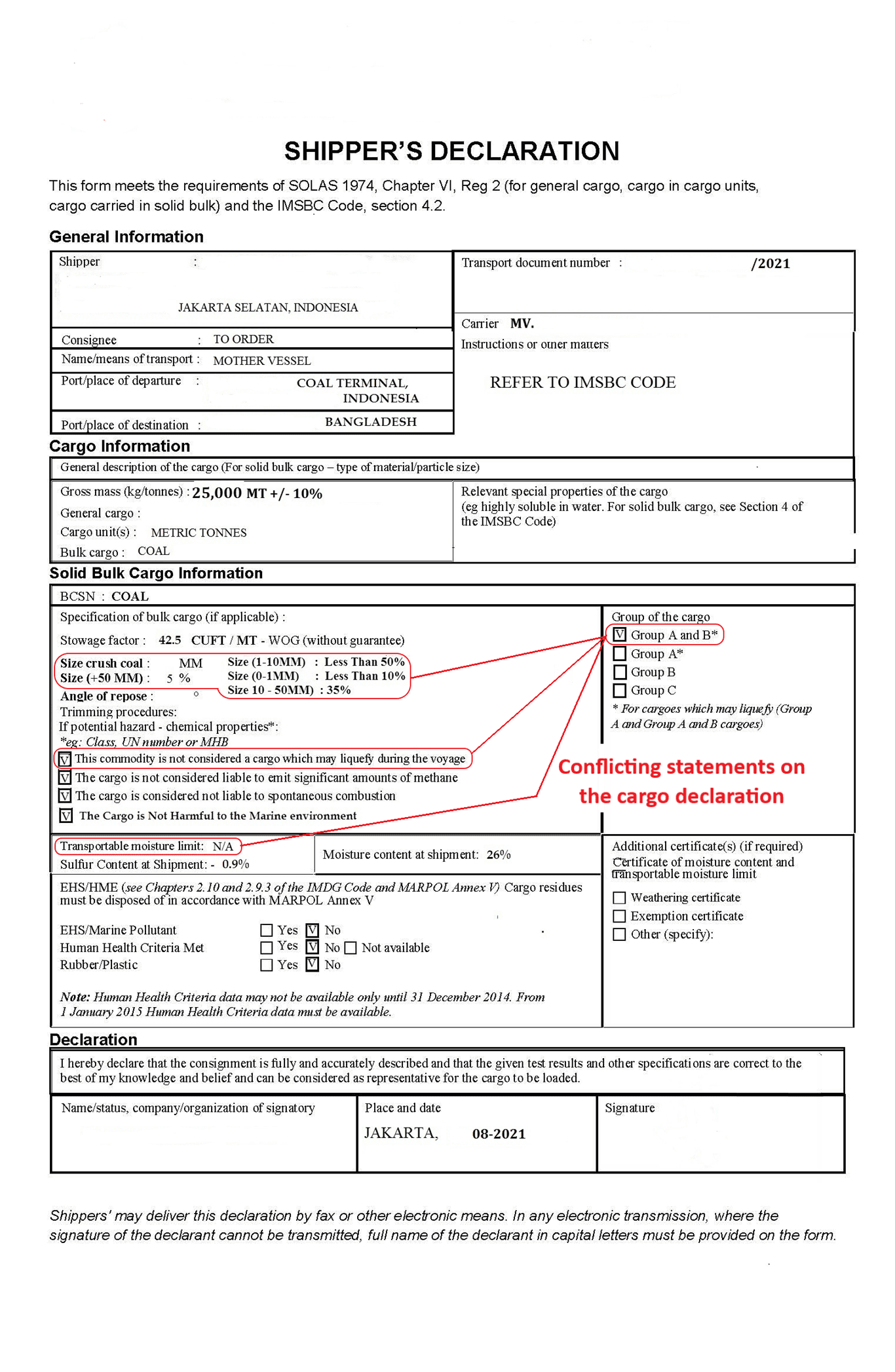Cargo Declarations under The International Maritime Solid Bulk Cargoes (IMSBC) Code
Under section 4 of the IMSBC Code, Shippers must provide the Master or his representative with appropriate information on the cargo sufficiently in advance of loading to enable the precautions necessary for proper stowage and safe carriage of the cargo to be put into effect. They must also declare that the cargo information is correct.
Unfortunately, the Club regularly sees Cargo Declarations that are inaccurate or incomplete. These can be for many reasons, such as:
1. Cargo is declared as not Group A, but a Transportable Moisture Limit (TML) and Moisture Content is stated.
2. Cargo is declared as Group A; however, there is also a contrary statement that the cargo will not liquefy.
3. Cargo is not declared a Group A, although the cargo sizing given shows Group A would apply - in the absence of any other required certification to exclude the cargo from being Group A.
4. Cargo group declared does not agree with those given within the IMSBC Code schedule for the given Bulk Cargo Shipping Name (BCSN).
5. Trade name is given rather than BCSN.
6. The given BCSN is not listed in the IMSBC Code, and provisions of section 1.3 of the IMSBC Code have not been followed.
7. Additional certification required by the applicable IMSBC Code schedule is not provided or is out of date.
8. When presented for loading, cargo properties are seen to not agree with those stated on the Cargo Declaration.
9. Not all information required by the relevant IMSBC Code schedule is given.
10. The latest edition of the IMSBC Code and cargo schedule is not applied.

The above list should not be considered exhaustive but indicates frequent issues seen by the Club.
Before accepting a dry bulk cargo for loading, Masters must familiarise themselves thoroughly with the applicable IMSBC Code schedule and the information that needs to be provided by Shippers. They can then review the information supplied and:
- In cases of discernible error in the information provided, the Master must refuse to load until an accurate Cargo Declaration is presented. Similarly, if any required information is not provided, the Master must not allow loading to start.
- If the Shipper provides what is suspected to be inaccurate or falsified information, the cargo should not be loaded until it can be verified that it is safe to load and that the certification is as per the IMSBC Code.
- If the Master is confident that the information is complete and accurate, then cargo may be loaded subject to any relevant provisions under the applicable IMSBC Code schedule
Members are reminded that compliance with the IMSBC Code is mandatory under SOLAS; therefore, cover may be prejudiced when an inaccurate Cargo Declaration is knowingly accepted.
